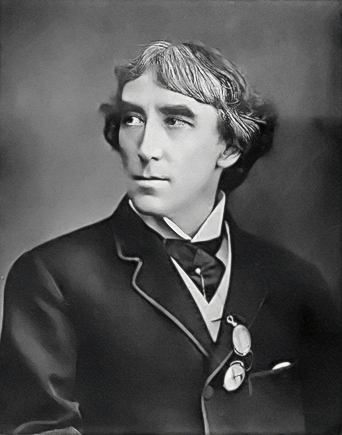|
Charles Groves (actor)
Charles Groves (6 December 1843 − 8 July 1909) was an Irish-born, British stage actor of the Victorian era, associated with his work in comedy in London's West End and on Broadway. Biography Groves was born in Limerick, eldest of the ten children of the Groves family. His parents were actors Charles Groves (1807−1864) and Martha Bigg (1822−1915), who were touring Ireland with a theatre company. His father was a provincial actor of thirty years experience, while his mother had been a successful child star, appearing in the title role of '' Tom Thumb'' at the Theatre Royal, Haymarket and in ''Peter Bell, The Waggoner'' at the Royal Coburg Theatre (today the Old Vic). His first appearance onstage was at ten months old in the play ''Mr. and Mrs. White'' at the Theatre Royal, Monmouth, alongside his parents. He continued to work and perform in his family's theatre company throughout his childhood. In adulthood he joined the Brighton Theatre Royal as resident low come ... [...More Info...] [...Related Items...] OR: [Wikipedia] [Google] [Baidu] |
Actor Charles Groves (1843-1909)
An actor or actress is a person who portrays a character in a performance. The actor performs "in the flesh" in the traditional medium of the theatre or in modern media such as film, radio, and television. The analogous Greek term is (), literally "one who answers".''Hypokrites'' (related to our word for hypocrite) also means, less often, "to answer" the tragic chorus. See Weimann (1978, 2); see also Csapo and Slater, who offer translations of classical source material using the term ''hypocrisis'' (acting) (1994, 257, 265–267). The actor's interpretation of a rolethe art of actingpertains to the role played, whether based on a real person or fictional character. This can also be considered an "actor's role," which was called this due to scrolls being used in the theaters. Interpretation occurs even when the actor is "playing themselves", as in some forms of experimental performance art. Formerly, in ancient Greece and the medieval world, and in England at the time of Wi ... [...More Info...] [...Related Items...] OR: [Wikipedia] [Google] [Baidu] |
Vaudeville Theatre
The Vaudeville Theatre is a West End theatre on the Strand in the City of Westminster. As the name suggests, the theatre held mostly vaudeville shows and musical revues in its early days. It opened in 1870 and was rebuilt twice, although each new building retained elements of the previous structure. The current building opened in 1926, and the capacity is now 690 seats. Rare ''thunder drum'' and ''lightning sheets'', together with other early stage mechanisms, survive in the theatre. History Origins The theatre was designed by prolific architect C. J. Phipps, and decorated in a Romanesque style by George Gordon. It opened on 16 April 1870 with Andrew Halliday's comedy, ''For Love Or Money'' and a burlesque, ''Don Carlos or the Infante in Arms''. A notable innovation was the concealed footlights, which would shut off if the glass in front of them was broken. The owner, William Wybrow Robertson, had run a failing billiard hall on the site but saw more opportunity in theatre. ... [...More Info...] [...Related Items...] OR: [Wikipedia] [Google] [Baidu] |
Windsor Castle
Windsor Castle is a royal residence at Windsor in the English county of Berkshire. It is strongly associated with the English and succeeding British royal family, and embodies almost a millennium of architectural history. The original castle was built in the 11th century, after the Norman invasion of England by William the Conqueror. Since the time of Henry I (who reigned 1100–1135), it has been used by the reigning monarch and is the longest-occupied palace in Europe. The castle's lavish early 19th-century state apartments were described by early 20th century art historian Hugh Roberts as "a superb and unrivalled sequence of rooms widely regarded as the finest and most complete expression of later Georgian taste".Hugh Roberts, ''Options Report for Windsor Castle'', cited Nicolson, p. 79. Inside the castle walls is the 15th-century St George's Chapel, considered by the historian John Martin Robinson to be "one of the supreme achievements of English Perpe ... [...More Info...] [...Related Items...] OR: [Wikipedia] [Google] [Baidu] |
Edward Compton (actor)
Edward Compton (14 January 1854 – 16 July 1918) was an actor and actor-manager of the Victorian era who enjoyed considerable success in touring the English provinces with plays by Shakespeare, Sheridan and Goldsmith but who met with failure while trying to break into the West End theatre. Early career Born in 1854 at 16 Charing Cross Road in London as Edward Montague Compton Mackenzie, he was the fifth of nine children born to Charles Mackenzie, an actor known as Henry Compton (1805–1877), and Emmeline Catherine ''née'' Montague (1823–1911). Edward Compton was educated at the private academy of Revd J. Gaitskell. His first stage appearance was in 1873 at the New Theatre Royal in Bristol as Long Ned in F. Boyle's ''Old London''. In 1874 he joined the Francis Fairlie Touring Company for who he appeared in '' East Lynne'' by Alfred Kempe, in ''Progress'' by C. R. Munro and ''The School for Scandal'' by Richard Brinsley Sheridan, followed by seasons in Bristol, Glasgow, Kilm ... [...More Info...] [...Related Items...] OR: [Wikipedia] [Google] [Baidu] |


